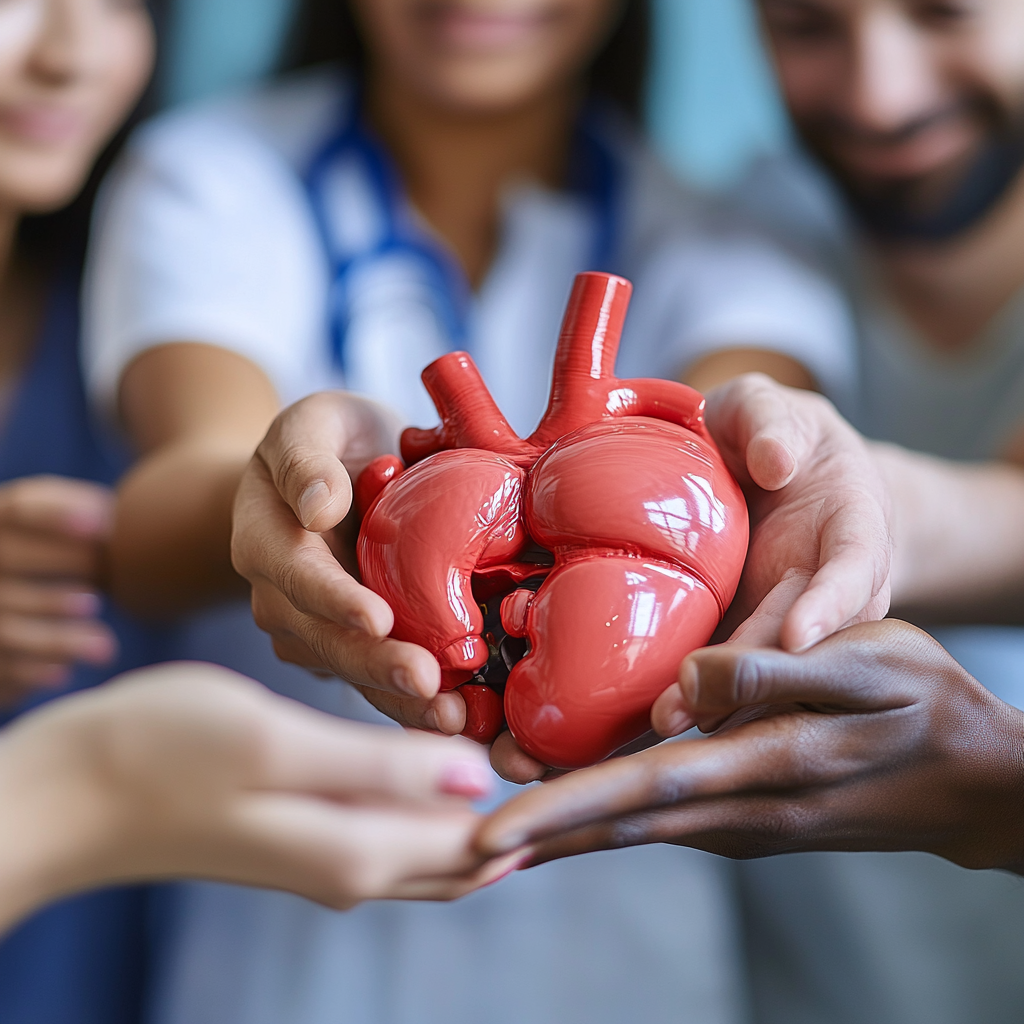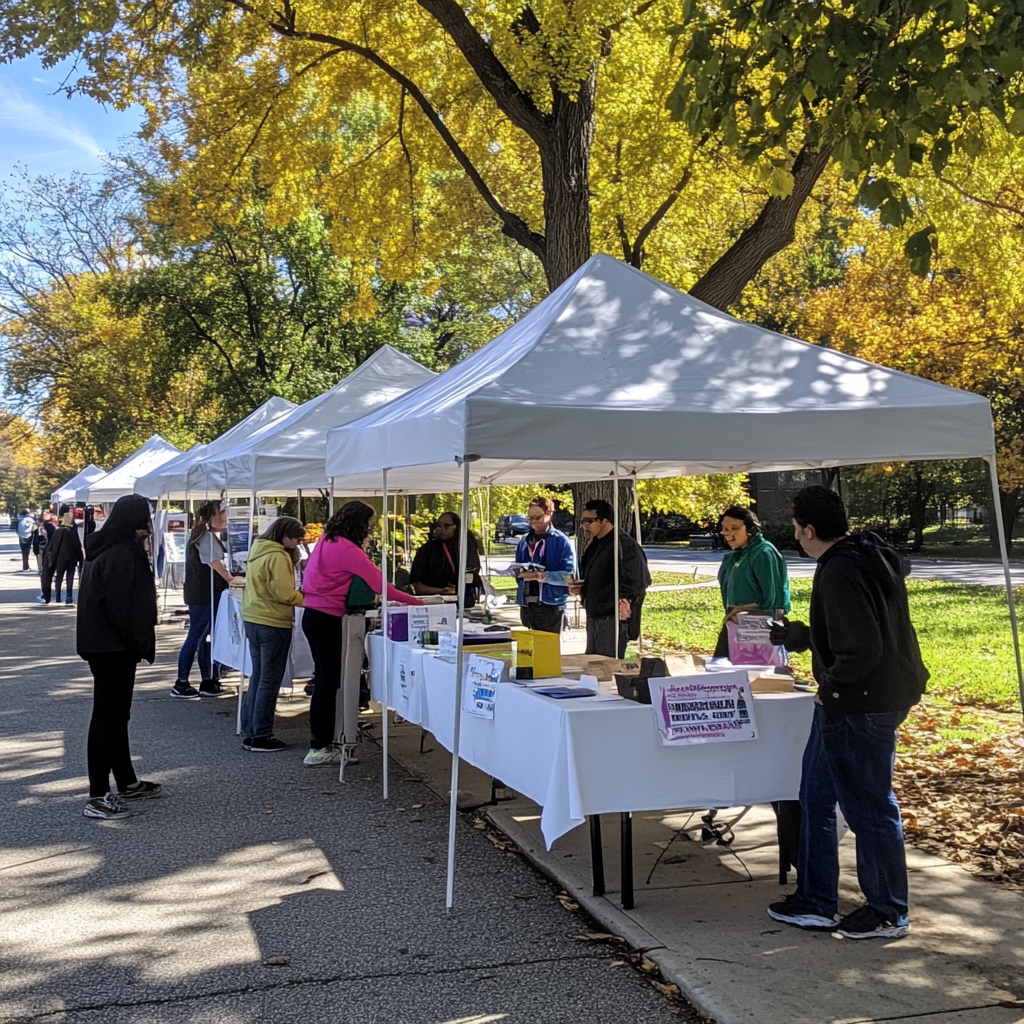Boosting Public Awareness and Organ Transport Efficiency: Effective Strategies
Public awareness and organ transport efficiency are crucial in saving lives through organ donation. Awareness campaigns boost donor registrations, while efficient transport ensures organs reach recipients quickly. This article explores how enhancing both can address the organ shortage crisis.
Key Takeaways
Public awareness campaigns are essential for increasing organ donor registration by dispelling misconceptions and providing accurate information about organ donation.
Efficient organ transport is critical for successful transplants, requiring advanced technology, streamlined processes, and best practices to ensure timely delivery and organ viability.
Cultural sensitivity and community engagement are vital in promoting organ donation, as they help address ethical concerns and enhance public trust in donation programs.
Understanding the Importance of Public Awareness

Public awareness is key to increasing organ donor registration and tackling the organ shortage crisis. Misconceptions and a lack of information still hinder many from registering as organ donors. Low registration rates significantly contribute to the shortage, making public education and registration incentives crucial.
Public awareness campaigns have shown a modest increase in organ donor registration, highlighting the importance of such initiatives in improving health outcomes. Addressing misconceptions, leveraging media, and engaging communities can bridge the gap between the demand for organ transplants and the supply of donated organs.
The following sections explore common misconceptions, the role of media, and the impact of community engagement in promoting organ donation.
Misconceptions About Organ Donation
Misconceptions about organ donation significantly affect donor registration rates. Many individuals harbor unfounded fears about the organ donation process, such as concerns over premature declaration of death or the belief that their religious practices prohibit organ donation. These misconceptions deter potential organ donors, exacerbating the organ shortage crisis.
Healthcare professionals and religious leaders play pivotal roles in dispelling these myths. Educating families about the organ donation process and its importance ensures that potential donors and their families are well-informed.
Religious leaders, on the other hand, can influence community perceptions positively, often helping to dispel myths and encourage donations.
Role of Media in Promoting Organ Donation
Media campaigns have proven effective in raising awareness about the need for organ donation, leading to increased donor registration. Through targeted messaging, media campaigns can significantly alter public perceptions of organ donation and highlight its life-saving potential.
Social media platforms, in particular, facilitate rapid dissemination of information and engage a younger audience, which is crucial for increasing organ donation awareness. Effective public relations strategies enable organizations to harness media power, reach broader audiences, and promote organ donation.
Community Engagement and Outreach Programs
Engaging communities directly is essential for raising awareness and increasing participation in organ donation programs. Community influencers can significantly enhance outreach efforts by addressing hesitant groups and dispelling myths.
Successful community outreach programs not only educate but also mobilize individuals to participate in the organ donation process. Involving trusted community figures allows these programs to effectively encourage donor registrations and change public perceptions about organ donation.
Enhancing Organ Transport Efficiency

Efficient organ transport is crucial for ensuring that donated organs reach recipients in a timely manner, significantly impacting transplant success rates and organ viability. Streamlined transport processes not only save lives but also maintain the quality of organs.
Technological advancements, such as improved refrigeration, transport vehicles, and innovative tracking systems, play a vital role in maintaining organ quality during transport. Best practices for Organ Procurement Organizations (OPOs), including clear protocols and communication channels, are essential for effective organ retrieval and delivery.
The following subsections will explore the challenges, technological innovations, and best practices in organ transport.
Challenges in Organ Procurement and Transport
Systemic inefficiencies, logistical challenges, and procedural technicalities hinder the effectiveness of organ transplantation. Logistics is crucial for timely organ delivery due to the limited viability of organs. Ensuring maximum retrieval of viable organs without damage is a key challenge in the organ extraction process.
Organ Procurement Organizations (OPOs) play a significant role in identifying potential donors and coordinating organ retrieval. However, variations in OPO performance can lead to inconsistent outcomes and missed donation opportunities.
Technological Innovations in Organ Transport
Recent technological innovations in organ transport include improved preservation solutions that extend organ viability during transport. Portable perfusion machines allow organs to be maintained in optimal conditions during transit, significantly increasing the chances of successful transplants.
Advancements in tracking and monitoring systems provide real-time data on organ condition and transport progress. The integration of drones and autonomous vehicles for organ delivery is being explored to reduce transit times and enhance reliability.
These technological improvements have resulted in faster retrieval and delivery times, enhancing the efficiency and effectiveness of organ transport systems.
Best Practices for Organ Procurement Organizations (OPOs)
Adopting best practices is crucial for Organ Procurement Organizations (OPOs) to enhance organ transport logistics. Upgrading transport vehicles and ensuring priority air access are methods to improve organ transport efficiency. Implementing efficient transport logistics directly contributes to minimizing the chances of organ wastage, subsequently increasing successful transplant rates.
Adopting these practices allows OPOs to significantly enhance their performance and improve transplantation outcomes.
Did you know that you can get from Manhattan to JFK in under 5 minutes without driving?
Blade offers seamless helicopter transfers from our West 30th Street Lounge in Manhattan to JFK Airport in just 5 minutes from $195 per seat.
Skip the traffic and ditch the stress with Blade's year-round airport service.

Impact of Efficient Organ Transport on Transplant Success

Effective organ transport significantly enhances the likelihood of successful transplants by minimizing ischemic time and preserving organ function. Enhancing the logistics of organ transport can improve the rate of successful transplants by reducing the time organs spend outside the human body.
Timely organ retrieval and delivery, coordination between donor hospitals and transplant centers, and case studies of successful organ transport will be discussed in the following subsections to illustrate the critical role of efficient transportation in transplant success.
Timely Organ Retrieval and Delivery
The viability of thoracic organs, such as the heart and lungs, decreases rapidly, being only suitable for transplant within four to six hours after retrieval. The time frame for liver viability ranges from eight to twelve hours, allowing for longer transport compared to more sensitive organs.
Systemic inefficiencies in the transplant process lead to missed opportunities in organ transplantation. Streamlining logistics in the organ transplantation system is necessary to ensure timely and successful transplants, maintaining organ viability and increasing success rates.
Coordination Between Donor Hospitals and Transplant Centers
Efficient communication between donor hospitals and transplant centers is essential to ensure organs are retrieved and delivered promptly. Effective organization and communication between donor hospitals and transplant facilities are crucial for safe and timely delivery of organs.
Breakdowns in communication and scheduling conflicts can lead to delays in organ retrieval. Coordination between the Organ Procurement Organization (OPO) and the surgical team is also critical for successful organ extraction. Timing is crucial for organ extraction success, as prolonged ischemia reduces viability for organs like the heart, lungs, and liver.
Case Studies of Successful Organ Transport
Case studies illustrate the critical role of efficient organ transport in improving transplant outcomes. For instance, a heart was successfully transported across 500 miles in under 3 hours, resulting in a successful transplant. In another case, a kidney was delivered via drone technology, reducing transport time significantly compared to traditional methods.
Key factors in these successful transports included rapid coordination between hospitals, use of advanced technology, and proactive communication among medical teams. Efficient logistics planning and clear protocols were also critical to avoid wastage and ensure organ viability.
These case studies emphasize the need for ongoing improvement in organ transport methods to enhance patient outcomes. The integration of new technologies and continuous training for medical teams can further optimize organ transport efficiency.
Strategies to Increase Donor Registration

Increasing donor registration is vital to address the organ shortage crisis. Understanding donor concerns and tailoring campaigns to diverse populations are crucial for formulating effective strategies. Public education campaigns, incentives for donors, and policy changes such as opt-out systems have proven successful in boosting donor registration.
Culturally sensitive campaigns that address knowledge gaps and incorporate cultural beliefs and practices can significantly improve public perception of organ donation. Public education initiatives have also been effective in raising the number of organ donors.
The following subsections will explore public education campaigns, incentives for donors, and policy changes.
Public Education Campaigns
Public education campaigns play a crucial role in increasing awareness and donor registration. These campaigns aim to educate the public about the risks and benefits of living organ donation. Media campaigns that combine mass communication with educational efforts have been shown to effectively boost organ donor registration rates and enhance knowledge among specific populations.
Enhanced public education campaigns, along with appropriate incentives, can improve donor registration. Applicants may propose pilot projects or extension projects aimed at supporting public education efforts about organ donation.
Incentives for Organ Donors
Offering non-monetary incentives, such as priority access to transplants, can motivate individuals to register as donors. The promise of priority access can create a compelling reason for individuals to consider becoming organ donors. These incentives play a crucial role in enhancing registration rates.
Overall, they can significantly contribute to increasing the pool of registered organ donors.
Policy Changes and Opt-Out Systems
Countries implementing opt-out systems typically see a notable rise in organ donor registration compared to those using opt-in systems. In an opt-out system, individuals are automatically considered potential donors unless they actively decline, leading to broader participation and significantly higher registration rates.
Addressing Ethical and Cultural Concerns
Ethical and cultural values significantly influence public attitudes towards organ donation. Addressing these concerns is essential for enhancing public trust and participation in donation programs. By understanding and addressing ethical implications, such as autonomy and consent, we can reduce donor hesitation and increase registrations.
Cultural sensitivity in organ donation campaigns and engaging religious leaders can further enhance donor participation. These subsections will explore ethical considerations, the impact of cultural sensitivity, and the role of religious leaders in promoting organ donation.
Ethical Considerations in Organ Donation
Potential donors commonly worry about their autonomy and the risk of being declared dead prematurely. Cultural and religious beliefs also create substantial barriers to organ donation registration. Educating the public about protocols and providing psychological and ethical support can alleviate these fears and build trust.
Addressing these ethical concerns enhances public trust and encourages more individuals to register as organ donors.
Cultural Sensitivity in Organ Donation Campaigns
Public misconceptions can greatly affect how willing donors are. Similarly, cultural and religious beliefs also play a significant role in this willingness. Community-based outreach programs that utilize culturally appropriate messaging have been successful in addressing misconceptions and increasing organ donor registrations.
Tailoring organ donation campaigns to reflect the cultural values of diverse populations improves engagement and increases donor registration rates.
Engaging Religious Leaders and Influencers
Religious leaders can play a pivotal role in reshaping community perceptions about organ donation. Involving community and religious leaders in organ donation education efforts can enhance trust and acceptance within diverse populations, ultimately increasing donor registration.
Did you know that you can get from Manhattan to JFK in under 5 minutes without driving?
Blade offers seamless helicopter transfers from our West 30th Street Lounge in Manhattan to JFK Airport in just 5 minutes from $195 per seat.
Skip the traffic and ditch the stress with Blade's year-round airport service.

Role of Healthcare Professionals in Organ Donation

Healthcare professionals are crucial in facilitating the organ donation process. They play a vital role in identifying potential organ donors and communicating with families about donation options. Their involvement at every stage of the process significantly increases the likelihood of successful donations.
Training for healthcare providers, hospital policies supporting organ donation, and collaboration between medical teams are essential components for effective organ donation. These subsections will delve into these critical areas.
Training for Healthcare Providers
Specialized training for healthcare providers is essential to ensure they can effectively engage with families regarding organ donation, especially during emotionally challenging situations. This training equips healthcare providers with the skills needed for sensitive communication and emotional support.
Providing emotional and psychological assistance is crucial for building trust with potential organ donors and their families. Ethical education can also significantly alleviate concerns potential donors have regarding the donation process.
Hospital Policies Supporting Organ Donation
Effective hospital policies are crucial for streamlining the organ donation process. Implementing clear policies can enhance coordination between teams and support donor families, ultimately increasing rates of successful donations.
Hospitals must establish written policies that guide their responsibilities and protocols for organ and tissue donation to comply with federal regulations.
Collaboration Between Medical Teams
Interdisciplinary collaboration among medical teams is necessary to ensure efficient organ donation and transplantation processes, minimizing conflicts and improving outcomes. Effective collaboration and seamless communication among various medical professionals are crucial for a successful organ transplant and transplantation process.
Real-world examples highlight that meticulous planning and execution of transport protocols directly contribute to favorable transplantation network transplant programs outcomes.
Measuring the Success of Organ Donation Initiatives
Evaluating the effectiveness of organ donation initiatives is essential to identify strengths and weaknesses in the system. Using Key Performance Indicators (KPIs) provides measurable metrics for assessing the success of organ donation programs.
Continuous evaluation and refinement of organ donation systems are critical to enhance the efficiency and outcomes of the programs. The following subsections will discuss KPIs, feedback from families, and continuous improvement.
Key Performance Indicators (KPIs)
KPIs play a crucial role in measuring the success of organ donation programs. Important metrics include donor registration rates, the conversion rate of potential donors to actual donors, and the rate of organ utilization. These outcome measures help assess the effectiveness of initiatives and identify areas needing improvement.
Feedback from Donor and Recipient Families
Gathering insights from families of donors and recipients plays a crucial role in refining organ donation processes and enhancing overall program effectiveness. Feedback from donor and recipient families helps identify areas for improving the donation experience and overall satisfaction.
By incorporating this feedback, organ donation programs can continuously improve and better meet the needs and expectations of those involved.
Continuous Improvement in Organ Donation Systems
Ongoing evaluation and refinement of organ donation systems are critical to enhance the efficiency and outcomes of the programs. Evaluating organ donation initiatives involves methods that assess both quantitative and qualitative outcomes to identify areas needing improvement. Feedback from donor and recipient families is invaluable in refining organ donation processes, providing insights that can lead to significant improvements.
Bottom Line: Boosting Public Awareness and Organ Transport Efficiency: Effective Strategies
In conclusion, boosting public awareness and enhancing organ transport efficiency are vital to addressing the organ shortage crisis. By debunking misconceptions, leveraging media, engaging communities, and implementing technological innovations, we can significantly improve donor registration rates and transplant success.
Healthcare professionals, ethical considerations, and continuous evaluation play crucial roles in refining the organ donation process. Together, these strategies can save countless lives, making organ donation a beacon of hope for those in need.
FAQs about Boosting Public Awareness and Organ Transport Efficiency
What are the main misconceptions about organ donation?
The main misconceptions about organ donation include fears of being declared dead prematurely, misconceptions regarding religious prohibitions, and misunderstandings about how the organ donation process works. Addressing these issues through public education is essential to dispel such myths.
How does media play a role in promoting organ donation?
Media plays a crucial role in promoting organ donation by raising awareness and changing public perceptions through targeted campaigns and social media platforms, resulting in higher donor registration.
What technological innovations have improved organ transport?
Technological innovations, including portable perfusion machines, advanced tracking systems, and drone technology, have markedly improved the efficiency and reliability of organ transport. These advancements ensure better preservation and timely delivery of organs for transplantation.
How can healthcare professionals facilitate the organ donation process?
Healthcare professionals can facilitate the organ donation process by identifying potential donors, effectively communicating with families, and ensuring the proper execution of the donation procedures. Their active involvement is crucial in maximizing the chances of successful organ recovery.
What strategies can increase donor registration rates?
To increase donor registration rates, implementing public education campaigns and using opt-out systems can be highly effective. Additionally, offering non-monetary incentives, such as priority access to transplants, may further encourage individuals to register.
Disclaimer:
Please be aware that the content on this page has been generated by using artificial intelligence language models and may contain errors, inconsistencies, or outdated information. It is provided as-is without any warranties or guarantees of accuracy. We strongly recommend using this content as a starting point for further research. We disclaim any liability for damages or losses resulting from the use or reliance on this content.